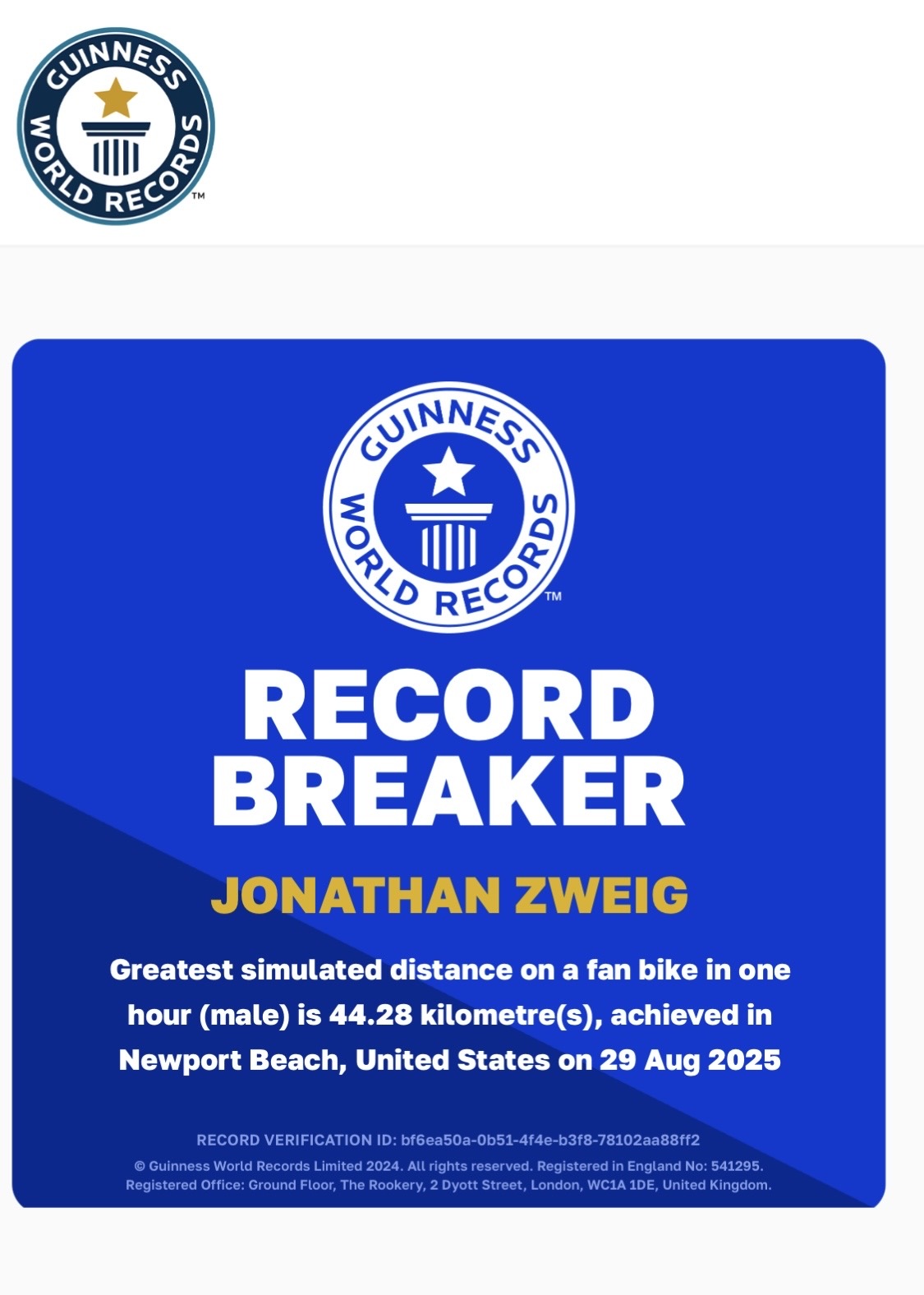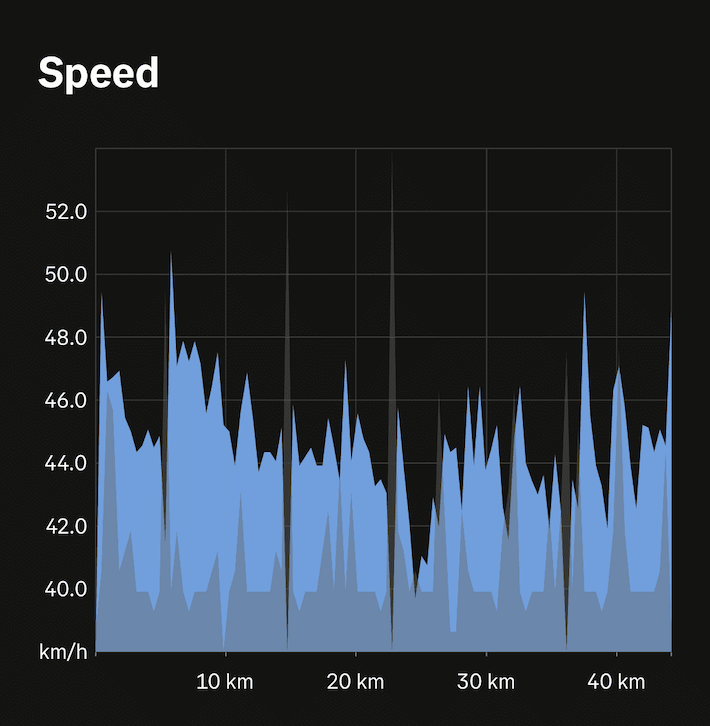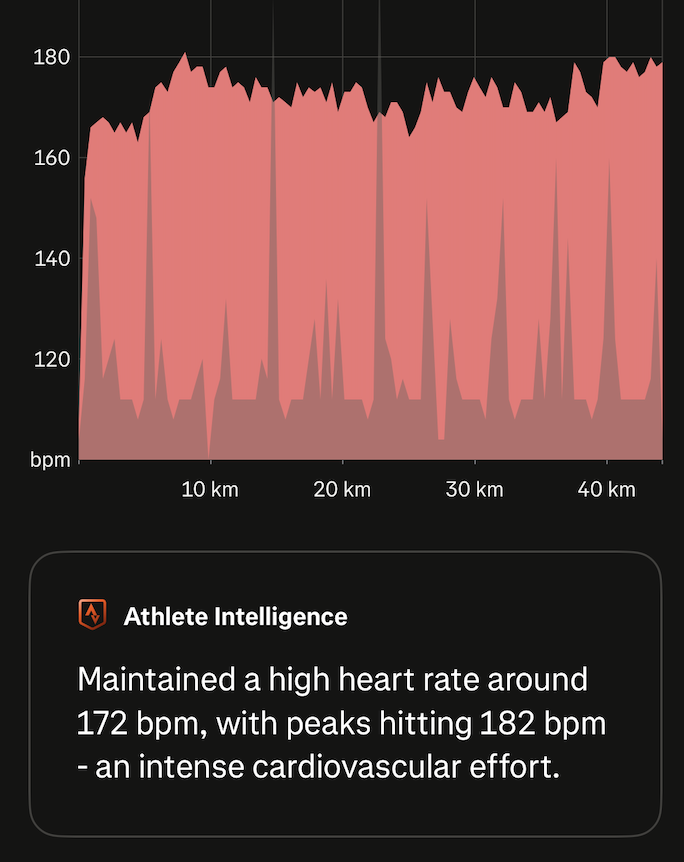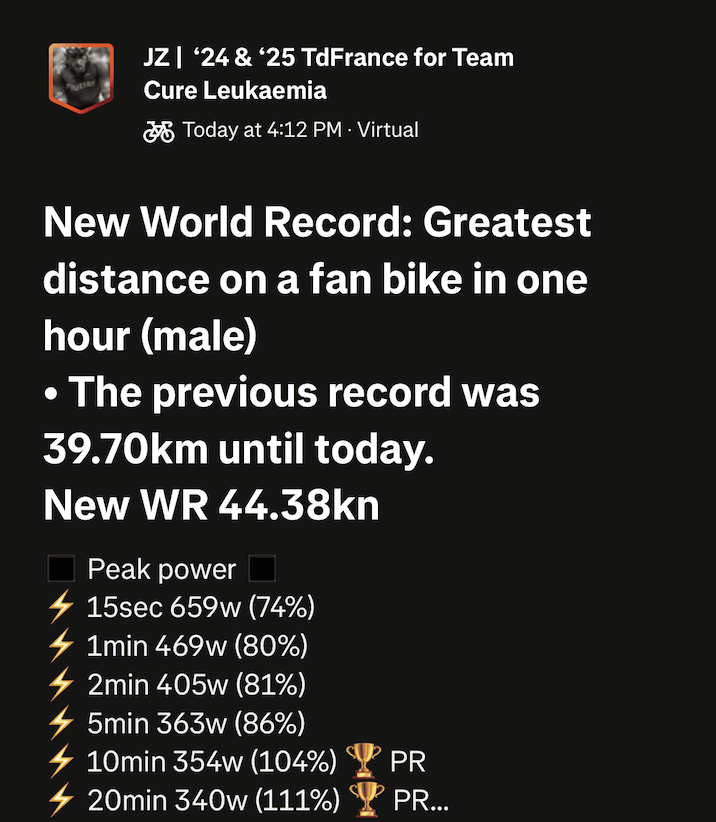.png)
At Quvy.com, we believe winning isn’t random. It isn’t luck. It’s engineered. Winning is a science.
That philosophy powers everything we do, from how brands discover their winning ad creative to how performance itself can be simulated and optimized. And recently, it was on display in a whole new way: when our CEO, Jonathan Zweig, set out to break the Guinness World Record for the longest distance on a fan bike in one hour.
The record had stood at 39.70 km (24.67 mi), set by Dutch trainer Olav Knip in March 2023. Jonathan not only broke that record, he crushed it—riding 44.28 km (27.51 mi) in one hour in Newport Beach, California. The achievement was officially recognized as a Guinness World Record on August 29, 2025.

.png)
The Science of Winning, in Action
Why highlight a world record attempt? Because it demonstrates the very principle that drives Quvy. Records aren’t broken by accident. Neither are markets.
Every pedal stroke in this record attempt is measured. Every watt of output has been tested, refined, and simulated. The same approach defines how Quvy works: by running your ads through synthetic audiences that replicate real-world behavior, we remove the guesswork and reveal which ideas will break through before they ever launch.
Athletes use simulation to break barriers. Marketers can use it to win markets.
🚴 Jonathan Zweig’s Record-Breaking Stats
- Distance: 44.28 km in 1 hour (New WR)
- Average Speed: 44.3 km/h
- Max Speed: 51.4 km/h
- Avg Heart Rate: 172 bpm
- Max Heart Rate: 182 bpm
- Time in Threshold Zone: 94.1% (56 minutes)



Training for Records, Riding for a Cause
Jonathan’s journey to this moment began in spring 2020, when he committed to training with purpose. For him, the pursuit of performance was never just about numbers on a screen, it was about combining discipline with impact.
In 2024 and 2025, Jonathan completed the entire Tour de France route, all 21 stages of both tours, as part of Team Cure Leukaemia. Alongside other riders, he climbed the Alps, battled the Pyrenees, and rolled into Nice and Paris, helping raise over $2,000,0000 and awareness for Cure Leukaemia.
The Tour became both the ultimate training ground and a mission-driven commitment. Every mile ridden was fuel for endurance, resilience, and purpose. Now, that same preparation converges in a single hour: the Guinness World Record attempt.
That dedication paid off, not just in the Tour de France challenges, but in this one-hour ride that now stands as a world record.
From the Tour to the Garage
At first glance, the Tour de France route and a garage fan bike might seem worlds apart. But both share the same foundation: performance built on preparation.
The world’s toughest cycling route conditioned Jonathan for extreme endurance. The garage record attempt now distills that experience into a pure test of power, focus, and science.
Quvy brings the same idea to business. Whether you’re launching a movie trailer, rolling out a new product, or testing ad creative, the environment doesn’t matter. What matters is the preparation, and the ability to simulate how audiences will respond before you ever go live.
Science Over Guesswork
Too often, marketing is treated like a gamble. Throw a campaign out, see what sticks, and hope for the best. But just as no athlete would approach a world record without data, simulation, and strategy, no brand should approach their audience blind. That’s the gap Quvy fills. With synthetic audiences, we give brands a way to test, refine, and perfect their creative before spending on media. It’s the same advantage an athlete gets from structured training and simulation: clarity, confidence, and results.
Winning ads, like winning records, don’t come from chance. They come from science.
The Bigger Picture
This world record ride is more than a personal achievement. It’s a demonstration of what Quvy stands for:
- Preparation beats luck
- Simulation beats guesswork
- Science wins
Jonathan’s one-hour ride on the Assault Bike is symbolic of the mindset every marketer, creator, and brand can adopt: to stop guessing and start simulating.
From the garage to the global stage, the formula is the same. Simulate. Execute. Win.
Relive the Ride

Jonathan’s record-breaking performance was streamed live, and the energy in the (virtual) room was electric.
If you missed it, you can still support the cause by donating to Cure Leukaemia here: Donate Now